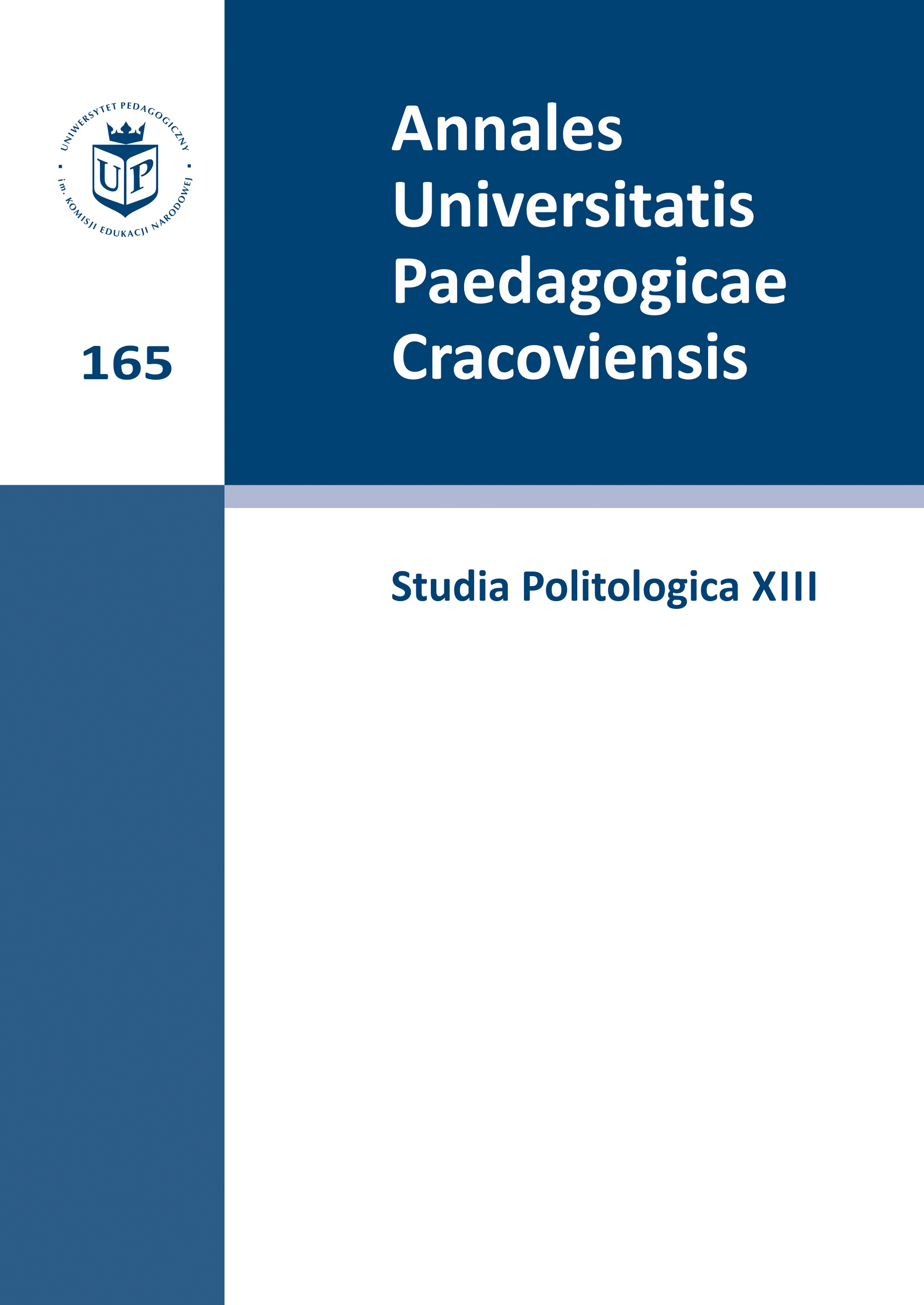Współczesny neofityzm polityczny na tle procesu komercjalizacji polityki
Abstrakt
The heuristic layer of the article includes the argumentation of the thesis that going to the opposite party and political reorientation based on an egoistic motive, called political neophytism, is becoming an impulse for the evolution of new political life forms and for the birth of new, hybrid political parties, which in turn are becoming a vivifying force of representative democracy, and which allow for keeping the quality of political life on a higher level, which can also be seen in the choice of legal-institutional solutions. In the public opinion the political conversion phenomenon is not gaining acceptation, for it is contrasting with the commonly accepted party loyalty rule and it bends the idea of political commitment, which is profiling the relations between the electorate and their deputies. Because of this some part of this electorate turns its back to political parties and transfers its expectations (and ruling authorization) to alternative subjects of common interest articulation, most commonly towards mass social movements. Others, in turn, feeling that they have been „cheated” by the neophyte, turn away from active political life completely and resign from taking part in the elections, others still turn to ideologically mutated historical parties which try to adopt the system of values and ideological cannons to the shifting socio-political conditions. In these groups there are the followers of radical parties with a clear ideology presented in the tradition and conservatism categories; the context of the way of thought of such a group can be used to analyze the election success of the Congress of the New Right - Janusz Korwin Mikke in the European Parliament election. It is also an important element of this presentation to prognose the changes in the political system under the phenomenon of political neophytism and similar behaviors, e.g. political mimicry.Pobrania
Opublikowane
2015-08-03
Numer
Dział
Artykuły
Licencja
Redakcja przyjmuje do druku teksty oryginalne, wcześniej niepublikowane. Treść czasopisma jest dostępna na licencji Creative Commons (CC-BY-NC-ND 3.0 PL)
Licencja ta zezwala na wykorzystanie materiałów opublikowanych w czasopiśmie w celach niekomercyjnych np. komentarza, krytyki, informacji, archiwizacji, nauczania lub prowadzenia badań, z poszanowaniem aktualnie obowiązującego prawa autorskiego (ustawa z dnia 4 lutego 1994 r. o prawie autorskim i prawach pokrewnych Dz.U. 1994 nr 24 poz. 83 z poźn. zm.). Zgodnie z wymogami licencji, konieczne jest dokładne podanie źródła cytowania lub parafrazowania oraz zachowanie tekstu w oryginalnej postaci (zakaz tworzenia utworów zależnych).

